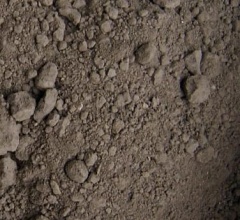Difference between revisions of "Lead Ore"
| Line 12: | Line 12: | ||
Most [[ores]] contain much less than 10% lead, and ores containing as small as 3% lead may be economically exploited. Ores are crushed and concentrated by froth flotation ordinarily to 70% or more. When lead is exploited to the floor, it should certainly be crushed or grinded for its additional application. <br><br> | Most [[ores]] contain much less than 10% lead, and ores containing as small as 3% lead may be economically exploited. Ores are crushed and concentrated by froth flotation ordinarily to 70% or more. When lead is exploited to the floor, it should certainly be crushed or grinded for its additional application. <br><br> | ||
==Application== | ==Application== | ||
| − | See Lead | + | See Lead |
Revision as of 10:01, 31 July 2013
| Infobox on Lead Ore | |
|---|---|
| Example of Lead Ore |  |
| Facts | |
| Origin | - |
| Stowage factor (in m3/t) | 0,24 to 0,67 m3/t (bulk) |
| Humidity / moisture | See text |
| Ventilation | No special requirements |
| Risk factors | See text |
Lead Ore
Contents
Description
Heavy soft grey solid material.
The natural pure lead is rare. Today, the lead mainly smelt and extract together with zinc, silver and copper and other metals. The most important lead ore is the galena PbS, which the lead reaches 86.6%. Other common lead-containing minerals are PbCO3 and PbSO4. And the world's largest lead producing country is China, the United States, Australia, Russia and Canada. Today, more than half of the lead is from recycled.
Most ores contain much less than 10% lead, and ores containing as small as 3% lead may be economically exploited. Ores are crushed and concentrated by froth flotation ordinarily to 70% or more. When lead is exploited to the floor, it should certainly be crushed or grinded for its additional application.
Application
See Lead











